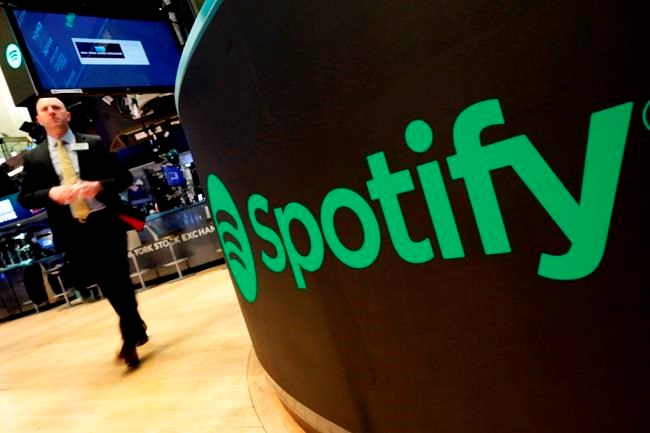GATINEAU, Que. — Audio streaming platform Spotify says that requiring it to make a contribution aimed at supporting Canadian content could force the company to cut its existing investments in order to maintain its financial viability.
The company says Canada is the only country looking into requiring streamers to make such payments and it hopes other jurisdictions don't follow that lead.
Spotify presented at a hearing Wednesday afternoon amid the CRTC's public consultations in response to the Online Streaming Act, which is meant to update federal legislation to require digital platforms to contribute to and promote Canadian and Indigenous content.
The commission is exploring whether streaming services should be asked to make an initial contribution to the Canadian content system and whether this would help level the playing field for local companies, which are already required to support Canadian content.
Nathan Wiszniak, head of artist and label partnerships for Spotify Canada, says imposing initial base contributions on platforms is premature and risks "overlooking the many ways that Spotify already contributes to and supports Canadian and Indigenous artists."
Since launching in Canada in 2014, Spotify says it has supported the Canadian music industry by directing around 70 per cent of its music revenue toward royalties paid to rights holders, who then pay artists and songwriters.
This report by The Canadian Press was first published Nov. 29, 2023.
The Canadian Press



